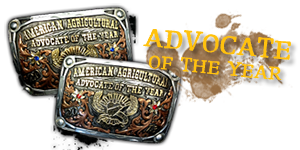Farmers have been known to exist ever since man learned to till the land and grow crops for food. Over time, as civilization grew, classifications of farmers came in handy since different aspects have been considered. Social class, geographical context and different interpretations are considered when it comes to classifying farmers.
One type of farmers is called yeoman. Aside from the fact they are not extremely known today, the term is not used in the present context and not something that just rolls off the tongue.
What is a yeoman farmer?
In social and geographical context, there are different definitions of a yeoman farmer. In America, they have been known to be farm owners. They own a substantial enough land and work on it with the help of family members. This makes them a model of what was known to be virtuous and self-sufficient way of American living known before. Yeoman farmers own the land they work on and did not rely on manpower outside the family. This kind of exemplifies a certain tight knit way of sustaining oneself in the Revolutionary era in America.
In the English context, not much is different in the definition. However, one distinction using the term yeomen in England was that it was used for classifying social class. Basically, they are free men who have ownership of meager land, which incidentally allows them voting rights in the parliamentary elections. As time went by, the definition of a yeoman in England has become limited to a more agricultural context making it more similar to the American definition. Yeomen are landowners. Still, however, there are different degrees to which a yeoman farmer is classified according to the size of the land they own.
In the modern context, it can be deduced that yeomen still exist based on the qualifications from the definitions set in both context. The main characteristics are:
• Yeoman farmers own the land they farm.
This is crucial because in our highly industrialized society, there still are people who till the land thus making up for the world supply of grains and food. However, farming commercial lands and being contracted as a labourer is different from having to work on your own land and living off it.
• They do not hire outside laborers.
In this context, yeoman farmers are people who work on the land owned by their families and probably passed on through generations. There is a kind of exclusivity here. They may be private farmers and some who remain close to the agricultural sector rather than be part of other commercial industries.
By the very definition from the traditional one, yeoman farmers are private farmers. They can either own vast expanse of land that remains within the family and not rented out or a piece of land where they get their sustenance from. Private growers may even be considered yeoman farmers because they fit both characteristics.
Either way, in a time where commercialization seems the way to go, even when definitions change, the values as emulated by yeoman farmers still reflect the value of hard work and honest living.
